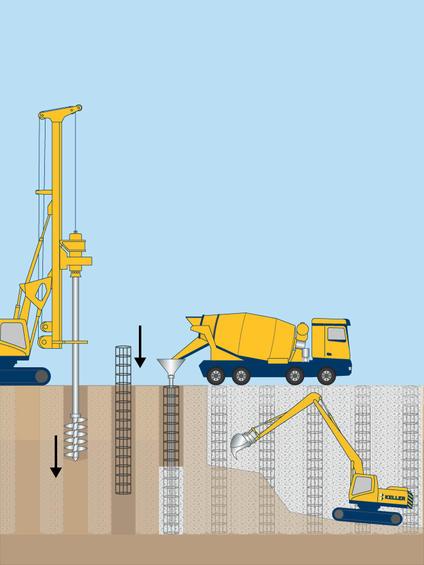A secant pile wall consists of overlapping (secant) piles to form structural or cutoff walls and achieve the required water tightness. The design can incorporate steel bar or beams for reinforcement and anchors can provide additional lateral support, if needed.

Common uses
Process
Secant pile walls consist of reinforced and non-reinforced piles. The unreinforced piles are usually installed first and consist of cement or bentonite. The reinforced piles are then installed and the reinforcement can be either cages, I-beams or H-beams.
Secant pile walls retained by anchors or strutting system are often supported by a waler beam to distribute the loads (prevent punching of anchor/strut through the pile) and as a mitigation measure for the unlikely event of an anchor/strut not carrying the load. This waler beam can be constructed as a reinforced concrete beam casted towards the pile wall, or by using steel profiles to be fixed to the piles and anchors/strutting systems.
Advantages
Quality assurance
We use the latest technology, testing regimes and best practices protocols developed over many years to ensure the position, verticality and structural integrity of our pile walls.